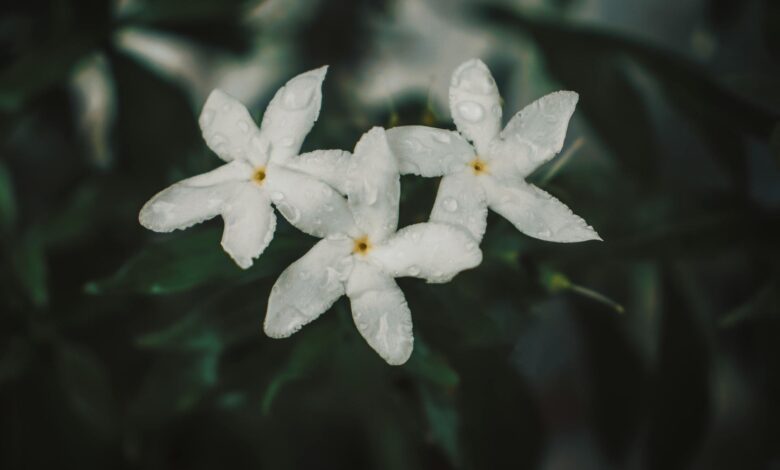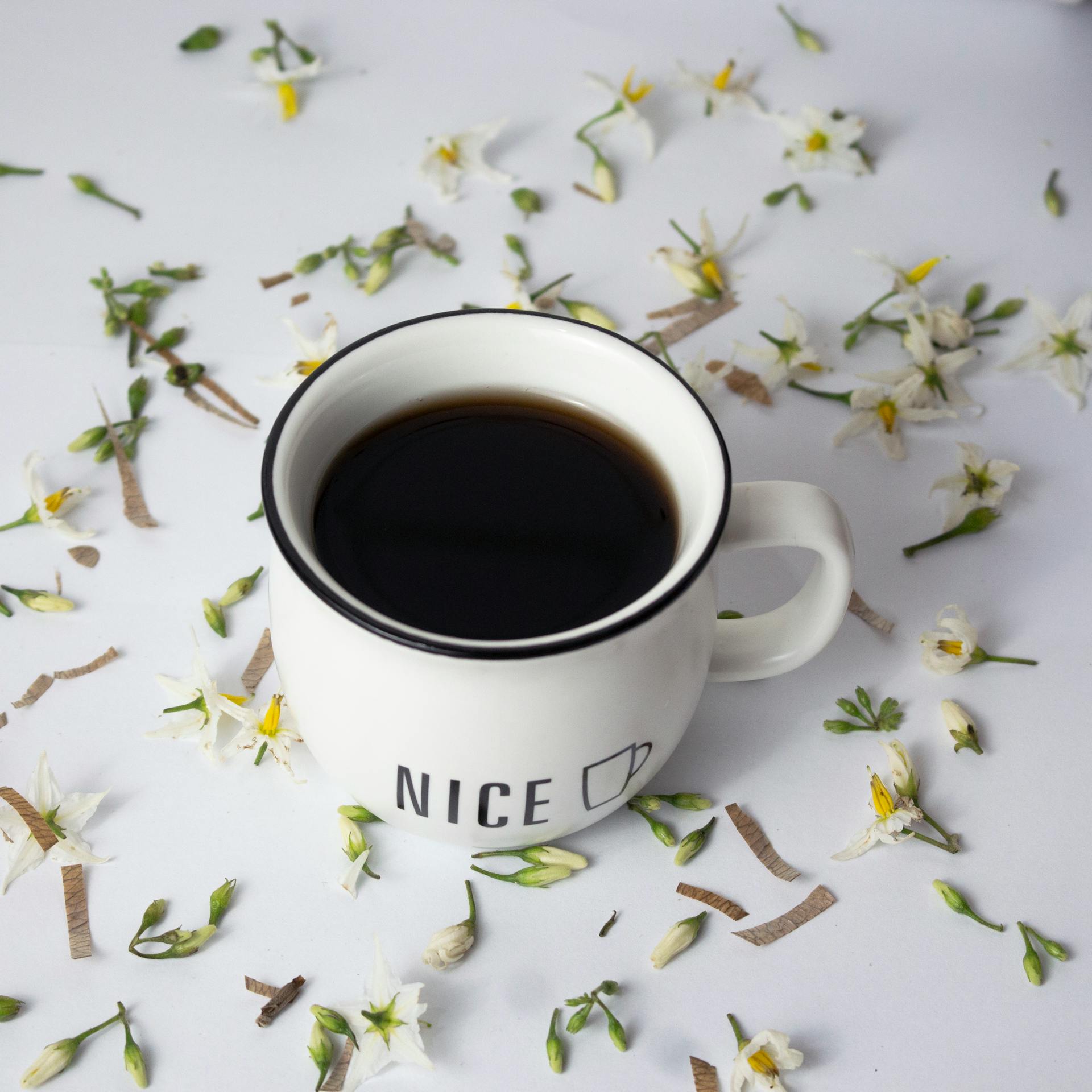The Enchanting Beauty of Jasmine: A Guide to the Fragrant Flower

History and Symbolism of This Fragrant Plant
The history of jasmine is deeply rooted in various cultures and traditions around the globe. Originating in the warm climates of Asia, the jasmine has been a cherished flower for thousands of years, with its presence woven into the fabric of many ancient civilizations. In India, jasmine is considered a sacred flower, often used in religious ceremonies and rituals, symbolizing purity, love, and divine beauty. In the Middle East, this beautiful plant has been a beloved ingredient in traditional perfumes and incense, while in China, it is associated with grace, elegance, and the pursuit of inner peace.
Jasmine’s symbolic significance extends beyond its cultural heritage. The flower’s delicate white petals and captivating fragrance have long been associated with themes of love, sensuality, and the ephemeral nature of life. In literature and art, jasmine is often depicted as a symbol of feminine beauty, innocence, and the transient nature of earthly pleasures.
Varieties of Jasmine
Jasmine is a diverse genus, comprising over 200 species, each with its own unique characteristics and charm. From the iconic Arabian jasmine (Jasminum sambac) to the fragrant star jasmine (Trachelospermum jasminoides), the world of jasmine offers a vast array of options for gardeners and flower enthusiasts.
Some of the most popular jasmine varieties include:
- Arabian Jasmine (Jasminum sambac): Known for its exceptionally fragrant, star-shaped white flowers, this variety is a staple in many Asian cuisines and perfumes.
- Common Jasmine (Jasminum officinale): A hardy, climbing variety with delicate white blooms and a sweet, floral aroma.
- Star Jasmine (Trachelospermum jasminoides): A versatile, evergreen vine with small, star-shaped white flowers and a refreshing, citrusy scent.
- Poet’s Jasmine (Jasminum grandiflorum): Renowned for its large, creamy white flowers and a rich, intoxicating fragrance.
- Jasmine Tobacco (Nicotiana alata): A unique variety with trumpet-shaped, fragrant white flowers that bloom in the evening.
Exploring the diverse range of this plant varieties can help gardeners and floral enthusiasts find the perfect fit for their needs, whether it’s for landscaping, fragrance, or culinary purposes.
Growing This Beautiful Plant
Cultivating jasmine in your own garden can be a rewarding and fulfilling experience. These plants thrive in warm, sunny conditions and well-drained soil, making them a popular choice for many gardeners. To ensure the success of your jasmine plants, consider the following steps:
- Site Selection: Choose a location that receives ample sunlight, preferably 6-8 hours of direct sun per day. These plants also prefer well-draining soil, so ensure the planting area has good drainage.
- Planting: When planting this fragrant flower, select a spot that allows for the plant’s growth, as many varieties can reach heights of 10-15 feet. Dig a hole twice the size of the plant’s root ball and plant the jasmine at the same depth as it was in its container.
- Watering: These plants require consistent moisture, especially during the growing season. Water the soil regularly, ensuring it doesn’t become waterlogged or excessively dry.
- Fertilizing: Provide your plants with a balanced, slow-release fertilizer in early spring to promote healthy growth and abundant blooms.
- Pruning: Regular pruning is essential for these plants to maintain their shape and encourage new growth. Prune in late winter or early spring, removing any dead or damaged stems.
By following these guidelines, you can create a thriving garden that will fill your outdoor space with its captivating fragrance and enchanting beauty.
Also read: Why Biodiversity is Important
Caring for Jasmine
Ensuring the proper care and maintenance of jasmine plants is crucial for their long-term health and vigor. Here are some essential tips for caring for your jasmine:
- Watering: Jasmine plants require consistent moisture, but they should not be overwatered. Water the soil when the top inch becomes dry, taking care not to let the plant sit in standing water.
- Fertilizing: Feed your jasmine plants with a balanced, slow-release fertilizer in early spring and mid-summer to provide the necessary nutrients for healthy growth and abundant blooms.
- Pruning: Regular pruning is essential for maintaining the shape and vigor of jasmine plants. Prune in late winter or early spring, removing any dead, damaged, or wayward stems.
- Trellising: Many jasmine varieties are climbing plants, so providing a trellis or support structure can help them grow upright and showcase their cascading flowers.
- Winter Protection: In colder climates, it’s essential to protect your jasmine plants during the winter months. Mulch the base of the plant and consider covering it with a layer of burlap or a plant blanket to insulate the roots.
By following these care guidelines, you can ensure that your jasmine plants thrive and continue to enchant you with their captivating fragrance and beauty year after year.
Jasmine in Aromatherapy
The enchanting fragrance of jasmine has long been celebrated for its therapeutic benefits in the world of aromatherapy. The essential oil extracted from jasmine flowers is prized for its calming and uplifting properties, making it a popular choice for various holistic practices.
Jasmine essential oil is known to:
- Reduce Stress and Anxiety: The soothing aroma of jasmine has been shown to help lower cortisol levels, promoting a sense of relaxation and calm.
- Enhance Mood and Uplift Spirits: Jasmine’s floral scent is believed to have a positive effect on the limbic system, the part of the brain responsible for emotions and mood.
- Improve Sleep Quality: The sedative-like properties of jasmine oil can help induce a restful sleep, making it a valuable tool for those struggling with insomnia.
- Support Reproductive Health: Jasmine oil is sometimes used in aromatherapy to alleviate menstrual cramps and other reproductive-related issues.
Whether diffused, applied topically, or incorporated into a relaxing bath, jasmine essential oil can be a powerful tool for promoting overall well-being and enhancing the mind-body connection.
Jasmine in Skincare
The benefits of jasmine extend beyond the realm of aromatherapy, as this captivating flower has also found a place in the world of skincare. Jasmine’s natural properties make it a valuable ingredient in a wide range of beauty products, from moisturizers and serums to cleansers and toners.
Jasmine’s skincare benefits include:
- Hydration and Nourishment: Jasmine oil is rich in fatty acids and antioxidants, helping to deeply hydrate and nourish the skin.
- Soothing and Calming: The anti-inflammatory properties of jasmine can help soothe irritated or sensitive skin, making it a gentle choice for various skin types.
- Brightening and Glow-Boosting: Jasmine contains natural compounds that can help even out skin tone and impart a radiant, healthy glow.
- Anti-Aging Properties: The antioxidants in jasmine can help protect the skin from environmental stressors and reduce the appearance of fine lines and wrinkles.
Incorporating jasmine-infused skincare products into your beauty routine can be a luxurious and effective way to harness the flower’s natural benefits for healthier, more radiant skin.
Also read: Saving Our Precious Coral Reefs: A Call to Action
Jasmine in Cuisine

Beyond its captivating fragrance and enchanting beauty, jasmine has also found a place in the culinary world, adding a unique and delightful touch to a variety of dishes. From savory to sweet, jasmine’s floral notes can elevate and complement a wide range of flavors.
In Asian cuisines, jasmine is a beloved ingredient, used in:
- Teas: Jasmine-infused teas, such as jasmine green tea, are a popular choice for their soothing and aromatic properties.
- Rice Dishes: Jasmine rice, with its fluffy texture and delicate floral aroma, is a staple in many Asian cultures.
- Desserts: Jasmine is often used in sweet treats, such as jasmine-infused cakes, custards, and even ice creams.
- Savory Dishes: The fragrance of jasmine can also enhance the flavors of savory dishes, such as jasmine-scented curries and stir-fries.
Beyond its culinary applications, jasmine flowers can also be used to garnish and decorate a variety of dishes, adding a touch of elegance and visual appeal.
Jasmine in Perfumery
The captivating fragrance of jasmine has long been a prized ingredient in the world of perfumery, with its intoxicating floral notes gracing the formulations of countless iconic fragrances. Jasmine’s ability to evoke a sense of sensuality, romance, and elegance has made it a staple in the perfume industry for centuries.
Jasmine’s versatility as a fragrance note allows it to be blended with a wide range of other aromatic compounds, creating a diverse array of scent profiles. From the heady, sensual jasmine absolute to the delicate, airy jasmine sambac, perfumers have skillfully harnessed the flower’s enchanting qualities to craft unforgettable fragrances.
In the world of perfumery, jasmine is often used as:
- A key note in floral-based fragrances, adding depth and complexity
- A supporting note in more complex, multi-layered scent compositions
- A base note, providing a rich, long-lasting foundation for a fragrance
The enduring popularity of jasmine in the perfume industry is a testament to its timeless allure and the ability to evoke a sense of luxury, sophistication, and emotional resonance.
Jasmine, with its captivating fragrance and enchanting beauty, has long captivated the hearts and senses of people around the world. From its rich cultural significance to its diverse applications in aromatherapy, skincare, cuisine, and perfumery, this versatile flower continues to enchant and inspire.
Embrace the allure of this fragrant plant in your life by incorporating it into your daily routine. Explore the wide range of jasmine-infused products, from essential oils to skincare, and discover the transformative power of this captivating flower. Whether you choose to diffuse its soothing aroma, indulge in a beauty treatment, or savor its delicate flavor in your favorite dishes, the enchanting beauty of jasmine is sure to enrich your world.




